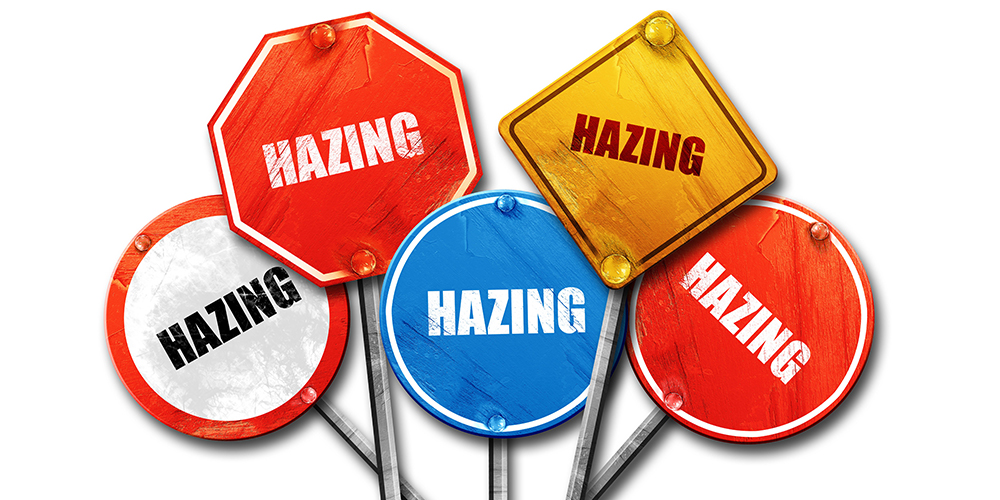ARTICLE UPDATE – JANUARY 2, 2025:
President Joe Biden officially signed into law the Stop Campus Hazing Act (SCHA) just before Christmas.
“SCHA reflects the collective efforts of families, survivors, researchers, and organizations, as well as the commitment of lawmakers who championed this issue,” according to a press release from the Clery Center. “Bipartisan support from Senators Amy Klobuchar (D-MN) and Bill Cassidy (R-LA) and Representatives Lucy McBath (D-GA) and Jeff Duncan (R-SC) ensured the bill’s success.”
ARTICLE UPDATE – DECEMBER 12, 2024:
The U.S. Senate passed the Stop Campus Hazing Act Wednesday evening, and it is now on its way to President Biden’s desk for signing into law.
According to the Clery Center, the Stop Campus Hazing Act has three primary components:
- Inclusion of hazing statistics in annual security reports,
- Implementation of hazing policies, including those specific to hazing prevention, and
- Compilation of a campus hazing transparency report.
ARTICLE UPDATE – SEPTEMBER 24, 2024:
The bipartisan Stop Campus Hazing Act (H.R. 5646, S. 2901) has passed the House of Representatives and is now moving to the Senate for consideration, reports the Clery Center.
ORIGINAL ARTICLE – SEPTEMBER 18, 2024:
A federal anti-hazing bill is one step closer to becoming law after the U.S. House Education and the Workforce Committee advanced the proposed legislation last week by a 28-2 vote.
The bi-partisan Stop Campus Hazing Act (H.R. 5646) would amend the Jeanne Clery Act to require institutions of higher education to disclose hazing crime statistics in its Annual Security Report (ASR), publicly list student organizations found responsible for hazing, and offer a research-informed hazing prevention program for students.
“[H.R. 5646] is about empowering students and families so that they can make an informed decision for themselves about what school they or their loved one attends or the club that they may join, and hopefully save their lives,” said U.S. Representative Lucy McBath, a Georgia Democrat and bill sponsor.
RELATED ARTICLE: How Should These Clery Act Crimes Be Classified in Your ASR?
How Is Hazing Defined in the Stop Campus Hazing Act?
The Committee also adopted technical amendments to the bill that clarify how to count hazing incidents, define student organizations, and offer a timeframe to implement the bill, SAFE Campuses reports. Higher education institutions must begin collecting data starting on the Jan. 1 that follows the enactment of the bill, start including the data in reports two years after the enactment date, and make the disciplinary findings available within 12 months following enactment.
The proposed legislation defines hazing as “any intentional, knowing, or reckless act” committed during “initiation into, an affiliation with, or the maintenance of membership in, a student organization.” It would include “any activity that places another person in reasonable fear of bodily harm through the use of threatening words or conduct.”
According to hazing researcher and professor Hank Nuwer, between 1959 and 2021, at least one hazing death took place on a U.S. college campus per year.
Stop Campus Hazing Act Inspired by Timothy Piazza’s Parents
U.S. Representative Glenn Thompson, another bill sponsor, said the legislation is the result of “tireless advocacy from affected families, campus safety professionals, and dedicated organizations,” the Times-Leader reports. Thompson said it was inspired by the anti-hazing efforts of Evelyn and Jim Piazza, the parents of Tim Piazza, who tragically died in Feb. 2017 as a direct result of a hazing ritual at his Penn State fraternity.
RELATED ARTICLE: 2-Ex Penn State Frat Leaders Plead Guilty in Timothy Piazza Hazing Death
This is the first time a bill aimed at preventing hazing in higher education has passed out of committee, according to Inside Higher Ed. Many have sought for years to enact federal anti-hazing legislation as hazing definitions and penalties are inconsistent at the state level.
“The Clery Act is the central framework for campus safety, and hazing was the last criminal threat to student safety that wasn’t addressed as part of the Clery Act,” said S. Daniel Carter, a campus safety consultant and longtime advocate for federal anti-hazing legislation. “Adding it to the Clery Act is a sign that this will be a tool for institutions to use to combat hazing.”
Several Greek life organizations, including the Association of Fraternity/Sorority Advisors, the Association of Fraternal Leadership & Values, the National Panhellenic Conference, and the North American Interfraternity Conference, have voiced support of the legislation.
The bill now advances for consideration by the full House.













